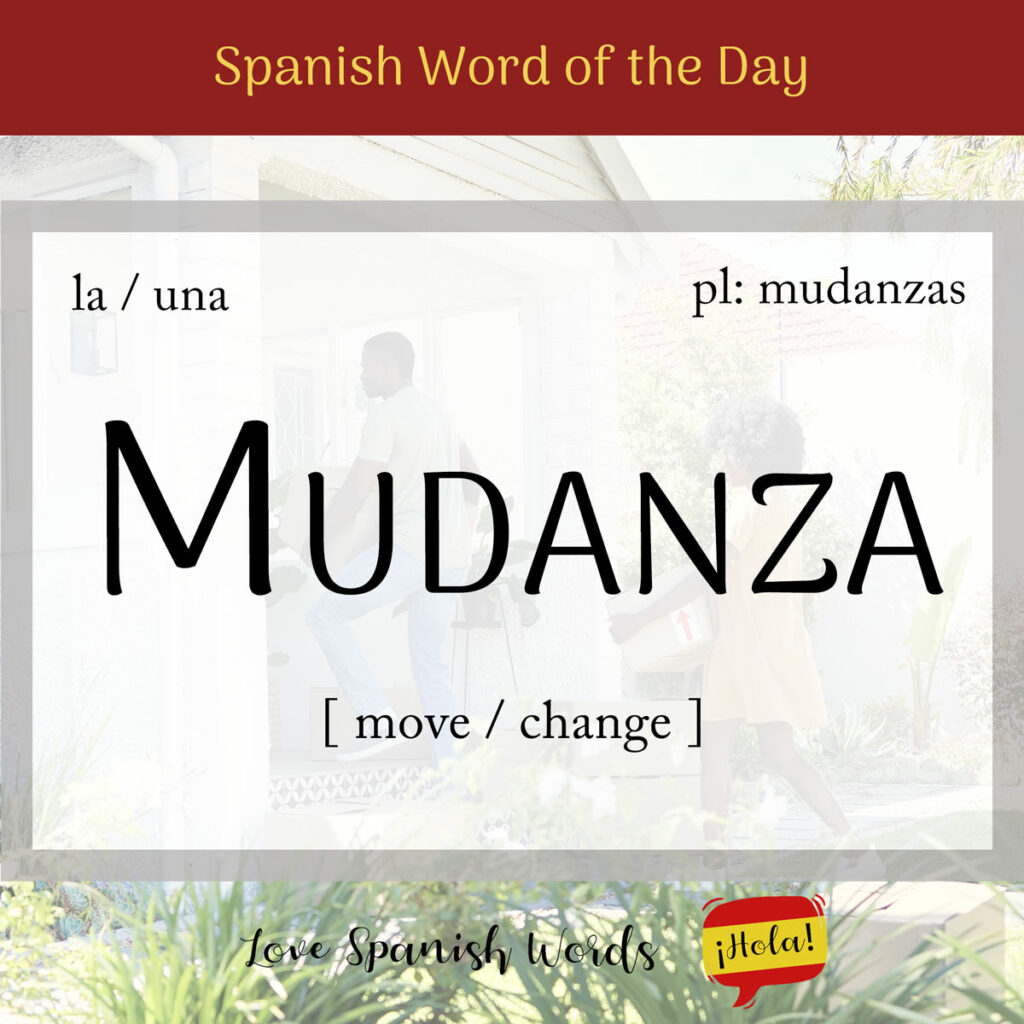Today, I’m writing about something currently happening in my life: I’m preparing to move house. In Spanish, when we talk about a move or a change in this context, we use the word mudanza, which originates from the Latin word mūtāre, meaning change.
Latin American Pronunciation
European Pronunciation

Mudanza is a feminine noun and takes the following definite and indefinite articles:
- la mudanza = the move/change
- una mudanza = a move/change
- las mudanzas = the moves/changes
- unas mudanzas = some moves/changes
Esta semana estoy trabajando muy duro para preparar todo para la mudanza.
This week I am working very hard to prepare everything for the move.
When related to moving house, mudanza can be used in the following expressions and terms:
- mudanzas = removals
- gastos de mudanza = moving costs
- camión de mudanza = removal lorry/van
- compañía de mudanza = removal company
- estar de mudanza = to be moving house
Coming from the verb mudar (se) – to move/to change – mudanza is generally used when talking about the action and effect of modification or change in respect to domicile (domicilio), ideas (ideas) or opinions (opiniones). Mudanza can also be used to describe inconsistency, fickleness or moodiness.
No podía soportar estar cerca de su mudanza constante por más tiempo.
I couldn’t bear to be close to her constant fickleness any longer.

Here is how the verb mudarse – to move/to change – conjugates in the present tense:
- yo me mudo = I move
- tú te mudas = you move (informal, singular)
- él / ella se muda = he / she moves
- nosotros nos mudamos = we move
- vosotros os mudáis = you move (plural)
- ellos / ellas / ustedes se mudan = they move / you move (plural)
Lastly, mudanza is also used in the context of dance. It refers to a set sequence of steps a dancer performs in alignment with the rhythmic structure of the music (compás), such as in flamenco dancing. This definition can be seen in the expression deshacer la mudanza which means to retrace the steps.

Idiomatic expressions using ‘mudanza’
En tiempos de tribulación, no hacer mudanza
Literal translation: in times of suffering do not move
English meaning: don’t change your mind at an inopportune moment, don’t change horses in the middle of the stream

